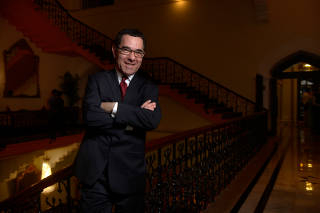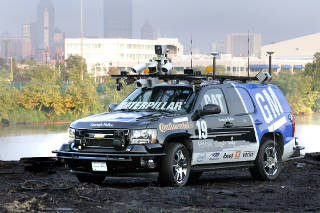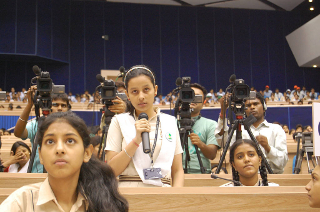Dear friend,
There is no such thing as one big idea when it comes to innovation and breakthroughs. Instead, “it’s many small insights coming together that bring big ideas into the world,” wrote Scott Berkun in his book The Myths of Innovation.
He likened the innovation process to putting together a jigsaw puzzle: “When you put the last piece into place, is there anything special about that last piece…? The only reason that last piece is significant is because of the other pieces you’d already put into place. If you jumbled up the pieces a second time, any one of them could turn out to be the last, magical piece…. we feel the larger collective payoff of hundreds of pieces’ worth of work.” The “final” insight comes from a base of many years of work and many smaller insights from diverse fields coming together.
So, how does one gather those jigsaw pieces—those little insights that over time build up to a Big Idea? That’s the broad subject of our podcast with Scott Hartley, author of the bestseller The Fuzzy and the Techie.
Hartley argues that studying the science, technology, engineering and math (STEM) majors, is not enough. You also need to study the humanities. Leaders of all the great tech companies have some technical ability to navigate our world today, but they also have an ability to take apply technology to the most meaningful human problems that exist. (This podcast is the second piece in our miniseries on the importance of the liberal arts in the digital age.)
Hartley illustrates his point of view with several examples from Silicon Valley where a melding of the liberal arts and technology is paving the way to some really interesting breakthroughs.
Three things stood out for me in this podcast:
1. The value of technology is in solving human problems and to solve human problems we fundamentally need an understanding of the social sciences, how we navigate society together, our own psychology, what we need as people and individuals.
2. Liberal arts is not just humanities. It is about stretching the human mind by exposing it to many subjects—including logic, mathematics, biology, history, geography, and literature. The liberal arts is actually the study of the sciences and humanities in equal measure.
3. The irony is, as automation becomes more prevalent in routine and rote tasks, the only thing that gives us a competitive advantage against machines are those very human skills that we think of as somewhat irrelevant.
On our special learning project MasterClass on TransformingSystems with Arun Maira, we are now moving to the second phase where we invite you to take the class and share your thoughts on LinkedIn, Facebook, or the comments section for any of the essays here. Here’s a note on the Public Class Room & Why You Should Join the Conversation, by Arun Maira.
We look forward to your participation.
Have a great week!
Sveta Basraon
Featured Story
‘The value of technology is in solving meaningful human problems’

In this podcast Scott Hartley, bestselling author of ‘The Fuzzy and the Techie’, talks about why tech knowledge is necessary, but not sufficient for entrepreneurs. They also need a broader curiosity about the world around them. (By Charles Assisi. Play Time: 40 mins)
From Our Archives
Four related stories on the interconnectedness of ideas, and the value of focusing on the right question first.
To win, car makers need to focus on making ‘computers on wheels’: Tony Seba

Electric vehicles, self-driving cars and car sharing are reaching a tipping point. The role of the regulator now is to get out of the way—like it did in telecom in India—and let the market make it happen. (By Indrajit Gupta and CS Swaminathan)
A mission to solve grand challenges

[From tartanracing.org.]
Grand challenges that bring together government, universities and industry, can solve near future problems using technologies innovatively. (By N Dayasindhu)
3 Reasons why every CEO and entrepreneur must watch or read dramatic tragedy

[Painting: Hamlet Act IV, SceneV (Ophelia Before the King and Queen) by Benjamin West]
Tragedy helps us develop humility, teaches us how to handle growth and inspires us. (By Baba Prasad)
Why questions score over answers

[Photograph by SuSanA Secretariat under Creative Commons]
All discovery, invention, innovation are outcomes of curiosity, of asking all manner of questions. (By R Sriram)
What We Are Reading
The authors of ‘Poor Economics’ on ending poverty
Abhijit Banerjee and Esther Duflo, two of the winners of the 2019 Nobel Prize for economics, have for years been conducting innovative experiments on ways to alleviate poverty that produce real-world—rather than theoretical—results. Knowledge@Wharton spoke with Banerjee and Duflo at a conference in Goa, India, in 2011.
The millennial urban lifestyle is about to get more expensive
As WeWork crashes and Uber bleeds cash, the consumer-tech gold rush may be coming to an end.
Why the 21st century will be defined by biology
Neuroscientist Susan Hockfield—the first female president of MIT—on women in science, living batteries, and the coming biotech revolution.
Why don’t rich people just stop working?
Are the wealthy addicted to money, competition, or just feeling important? Yes.
High schools to TikTok: We’re catching feelings
Teens love the app, and now it’s getting the stamp of approval with teacher-approved clubs. Did school just get ... fun?


